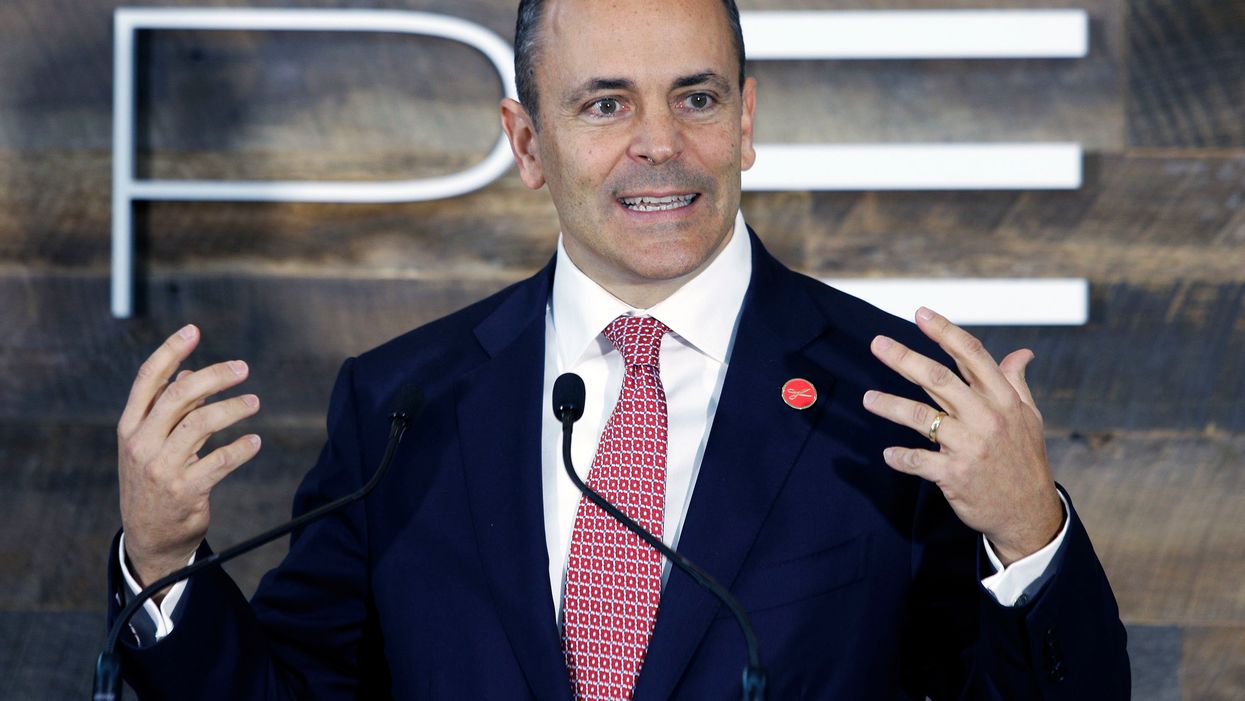For advocates of restoring voting rights to felons, nothing on the ballot next week is more important than the tossup race for governor of Kentucky.
The Democratic challenger, state Attorney General Andy Beshear, has used the closing days of the campaign to emphasize his promise to flex the governor's executive muscle to restore the franchise to about 5 percent the state's population — about 140,000 people out of prison after serving time for nonviolent crimes.
The Republican incumbent, Matt Bevin, says that would be an abuse of the governor's powers and that the only way to restore criminals' voting rights is by amending the state constitution, but he has declined to commit himself to pushing that cumbersome process if he wins a second term.
Kentucky and Iowa are the only states that permanently disenfranchise all felons unless the governor grants a reprieve. Bevin has done so in about 1,200 cases. But that is a tiny fraction of the 240,000 people who have completed their sentences but may not vote.
One-quarter of them are African-American, the biggest share of disenfranchised black people in any state according to the Sentencing Project, which advocates for reducing racial disparities in the criminal justice system.
Virginia's law is almost as strict as Kentucky's but its current and previous governors, Democrats Ralph Northam and Terry McAuliffe, respectively, acted unilaterally to broadly restore voting rights. The result has been a boost in turnout that has benefitted the Democrats' resurgence in the state. A similar move seems unlikely to turn Kentucky blue, but it could make the state somewhat more purple.
Beshear's campaign promise is an echo of the executive order issued by his father, the state's last Democratic governor, just before he left office at the end of 2015. Burt Steve Beshear's decision was reversed by Bevin just weeks later.
The governor has declined to say what he would do if he wins a second term and the solidly Republican Legislature musters the required 60 percent supermajority for putting a constitutional amendment on the statewide ballot. Such a bill is likely to get votes in Frankfort next year but passage is considered a decided longshot.
And Beshear has not specified how he would define a "nonviolent" offender or when he would judge that person's sentence as having been complete.
In the interim, a lawsuit by the Fair Elections Center and the Kentucky Equal Justice Center argues the state's system for putting voting rights restoration in the hands of the governor is unconstitutionally arbitrary.
The conventional view is that the restoration of felons' voting rights is on the rise, especially since the historic referendum in Florida last year promised to get as much as 1.7 million ex-convicts back to the voting booth. But, in fact, the roster of states that have enacted tougher felon disenfranchisement laws is much greater. In the two decades ending in 2016, the number of people who were unable to vote because of felony convictions grew 85 percent, to 6.1 million, according to the Sentencing Project.




















